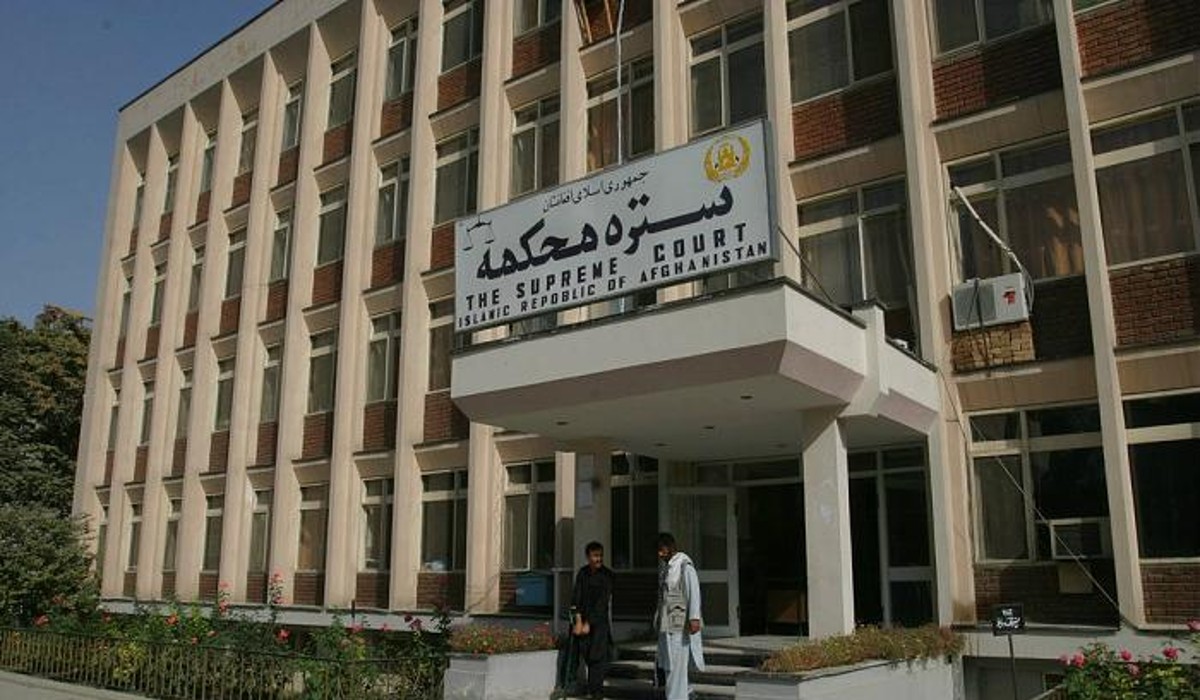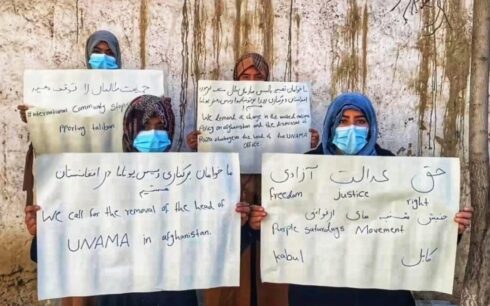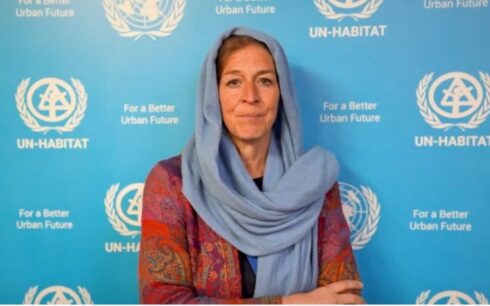More than 330 female employees of the former Afghan supreme court, who lost their jobs following the collapse of the former government, are at risk of attacks by former criminals.
One of these women, who asked to be referred to as Shukria due to security concerns, told Amu TV that she used to work for the supreme court but is now in hiding as she worries about revenge attacks by the Taliban.
Shukria stated that she and her colleagues went to the supreme court several times to continue their work; But faced violent treatment by the Taliban since their takeover.
“Every time we visited, they clearly told us that we are corrupt women, they don’t need us [anymore]. Once, a Taliban member hit me with barbed wire, close to the entrance gate of the supreme court. My leg was injured. I was threatened several times by the Taliban. I was called to appear at the PD7 police station as if I were a prosecutor,” she added.
Shukria, who is the only breadwinner of her eight-member family, said that after losing her job, she has faced immense financial challenges.
“Currently, I am hiding in one of the districts [in Kabul]. During the past one and a half years, I have been selling home items to pay for living costs. I sold all the pieces of gold I had. The last piece of gold I was forced to sell was my engagement ring, which I sold for 9,000 Afghanis ($100). Two days ago, I sold two of my blankets to buy food. At the moment, household expenses are all dependent on the sale of home items,” she added.
Shukria, who studied law, stated that she dealt with serious hardships to get her degree. She said the Taliban has destroyed all her dreams and left her and her three children in a bad situation.
She added that female employees of other entities receive salaries although they were instructed to stay at home. But former supreme court staff face an uncertain future.
Shafiqa, who worked for the primary court of Afghanistan for ten years, said: “One day, around 30 female employees went to the supreme court and demanded they be allowed to continue to work. We were told by the Taliban that we do not deserve a salary and that the supreme court administration does not need any women.”
Shafiqa, who lives in a rented house, said that she has not been able to pay rent and electricity for several months and now her power has been disconnected.
“There is no food. I have borrowed [money] several times from my friends, but I have not been able to pay [back]. It is embarrassing to ask again. My husband is suffering from back pain, and he cannot work. Some nights we sleep without eating food. Our life is a kind of gradual death. We are tired of life. Sometimes when I see the condition of my children, I tell myself that I wish I was dead so I wouldn’t have to witness this situation,” she added.
Shafiqa also stated that she and a number of her colleagues appealed for help from UNAMA, however, they did not receive any support.
She says she now suffers with depression, and urged aid agencies to provide them with food to survive this cold season.
Another former supreme court employee, who asked to be referred to as Alia, said that she worked at the supreme court for seven years and prior to that she was in the attorney general’s office for several years.
“Feeling needy is the biggest pain I experience. Because I used to work no matter the conditions; I was happy with the income as I could manage to provide for my needs. My husband also lost his job and now he is forced to do labor work, but the money he makes is not enough,” Alia said.
Alia said that she is dealing with mental problems and, “poverty, hunger, and that my innocent daughter can no longer study, angers me.”
Alia stated that she was working in administration departments that dealt with criminal cases and because of this she does not feel safe.
Following the Taliban takeover, a large number of criminals, who were prosecuted by the attorney’s general’s office, were released from jails and many joined the Taliban and have become a threat to the employees of the former administration.
The employees said that they have left their homes due to threats by certain criminals.
A prosecutor, who wished to remain anonymous, told Amu TV that she had prosecuted a criminal and he was supposed to be imprisoned for several years. But after the collapse of Kabul, he was released and is reportedly searching for her.
“Now that person is one of the key members of the group and he is trying to find me. I have changed my contact number. I constantly keep changing my shelter. My life and the majority of judges who are left in the country are under serious threat,” she said.
This comes amid severe restrictions imposed on women by the Taliban. The group banned women from education and work, from visiting parks, restaurants, and public baths; and they are not allowed to travel without a male chaperone.
The international community has not recognized the Taliban, so far, due to their strict measures against Afghan women.





